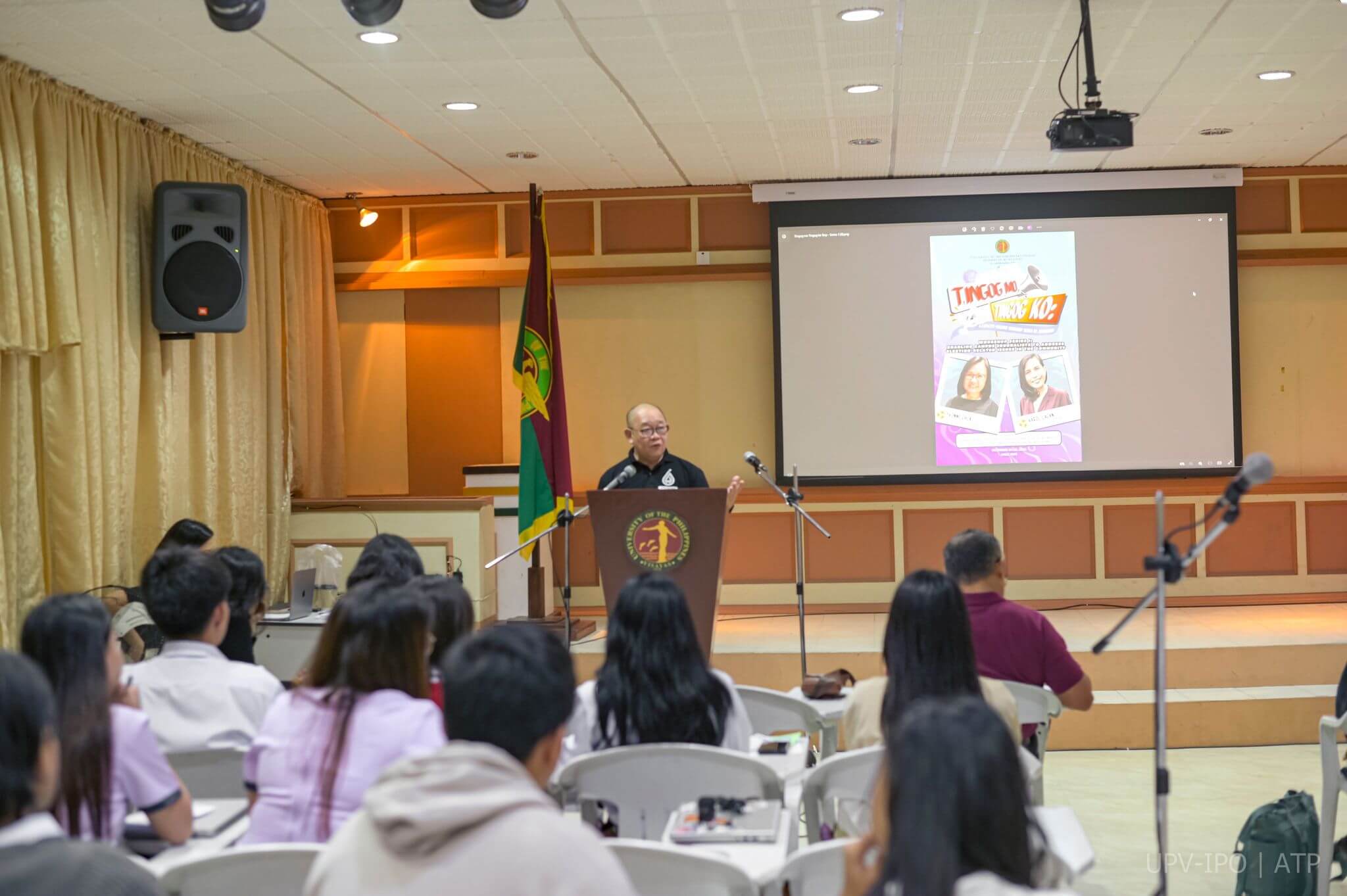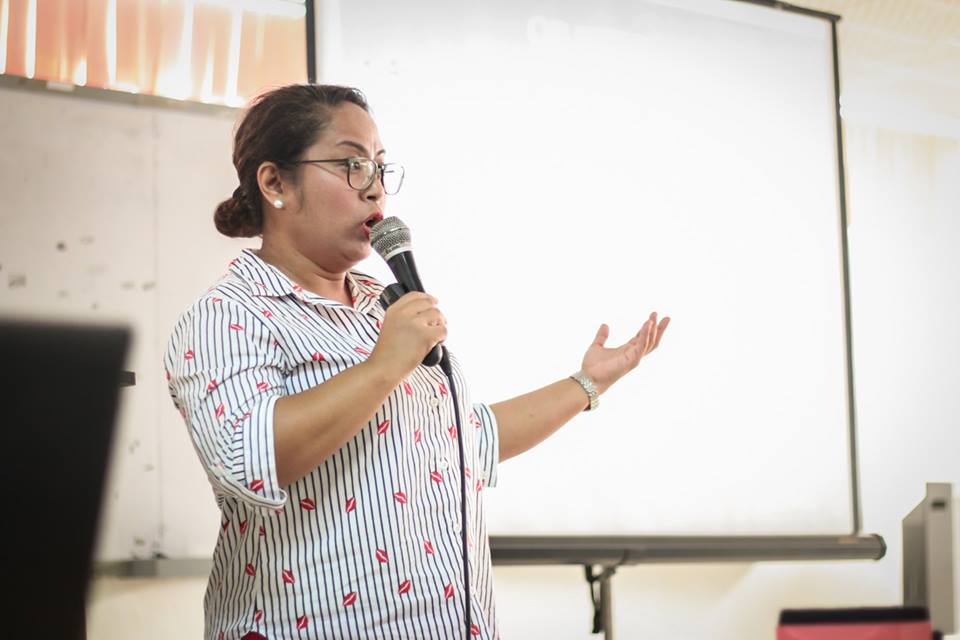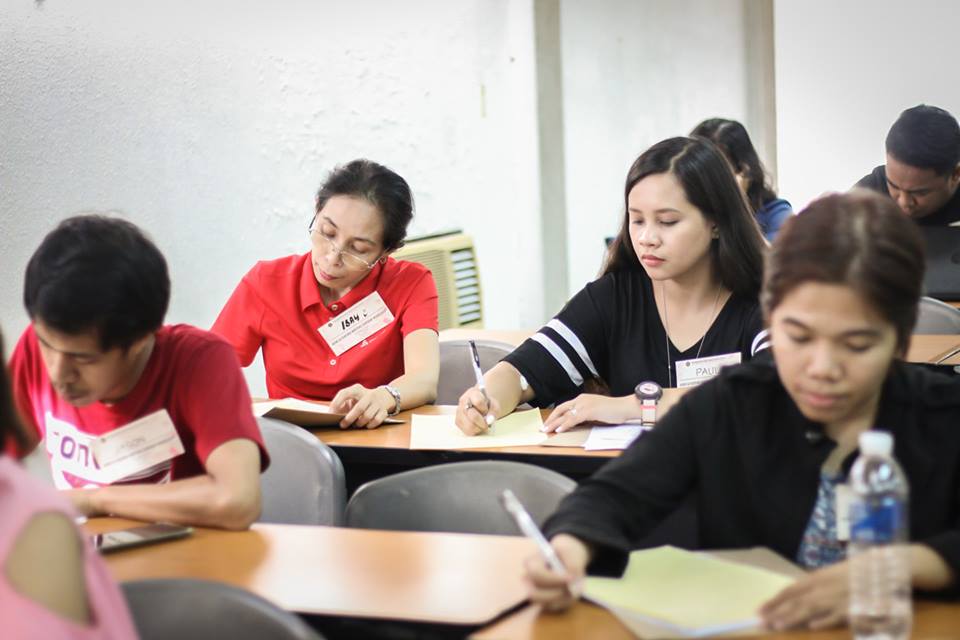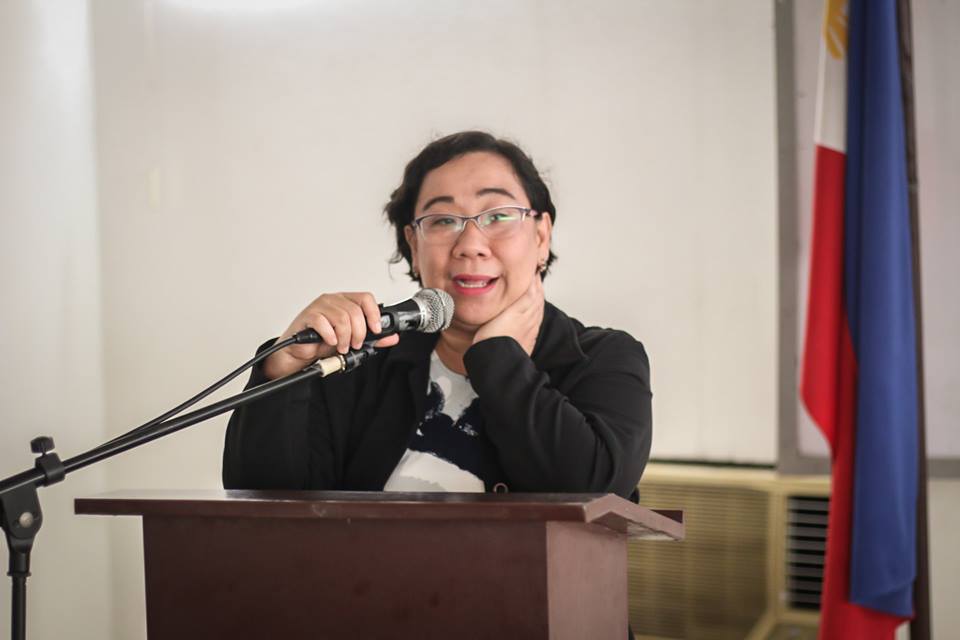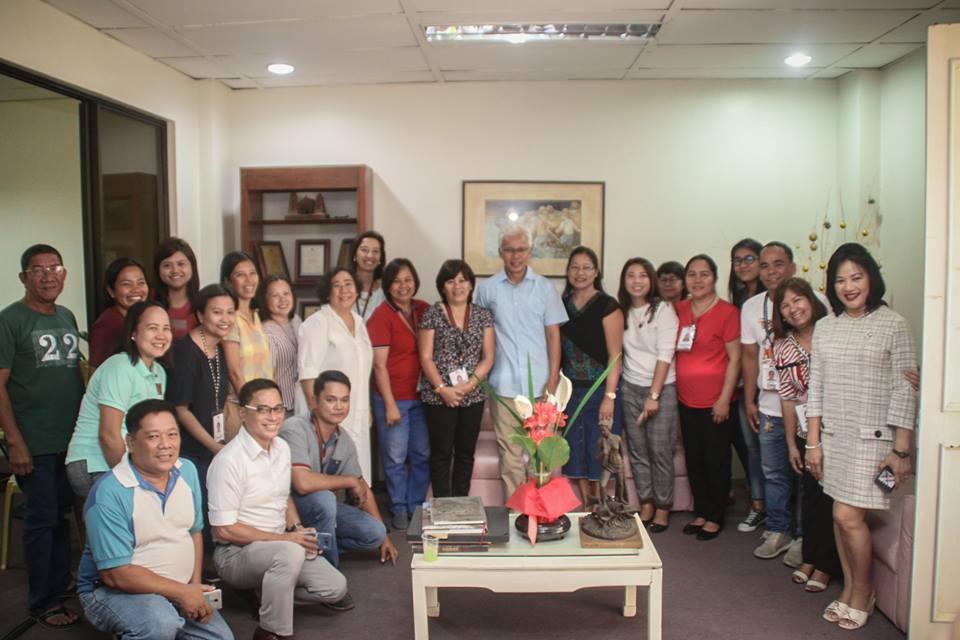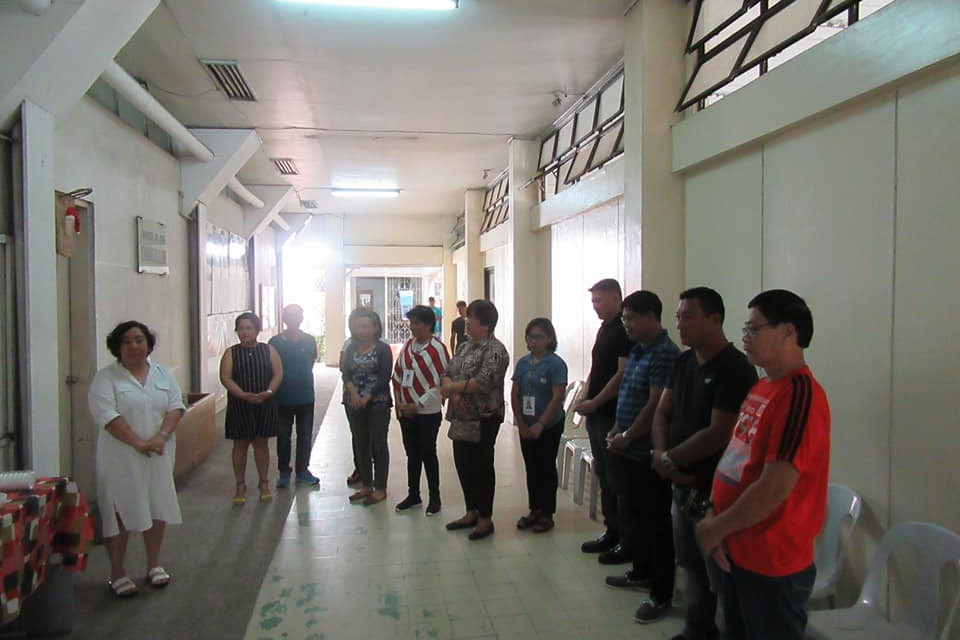Aimed to enable the younger generation of journalists to be the voices leading to an informed society, the Humanities Division of the University of the Philippines Visayas, together with iWrite, conducted the first part of their “Tingog Mo, Tingog Ko: A capacity-building workshop series on journalism” last October 24 and 25 at the Miagao Interactive Learning Center, UPV.
The event was attended by five secondary schools from Miagao, Iloilo, including Miagao National High School, Kirayan National High School, San Rafael National High School, Alejandro Firmeza Memorial National High School, and St. Louise de Marillac School of Miagao with seven participants each composed of student journalists and their advisers. Unfortunately, due to inclement weather that time, the other two confirmed schools, Bacolod and San Jose National High Schools, were not able to come and participate. Regardless, they may still attend the forthcoming sessions of the workshop series.
Two speakers from UP Diliman College of Mass Communication were invited. One was Asst. Prof. Karol Ilagan from the University’s Department of Journalism, centered on teaching investigative reporting and data journalism, and was also a former reporter in the Editorial Desk of the Philippine Center for Investigative Journalism (PCIJ).
The second speaker was Prof. Yvonne Chua, an Associate Professor of Journalism at the University, focusing on journalism ethics, fact-checking, and data journalism. She is a veteran journalist and has even been a country partner of the Reuters Institute for the Study of Journalism's annual Digital News Report since 2020, as well as a cofounder of the media nonprofit Vera Files.
Their talks were divided into four main lessons, discussed on the first day of the event series. Asst. Prof. Ilagan went over the “Basics of Election Reporting” and “Using AI in Reporting Elections.” On the other hand, Prof. Yvonne Chua talked about “Interpreting Polls and Detecting Spins” as well as “AI and Election Disinformation.”
In her discussion about the basics of election reporting, Asst. Prof. Ilagan challenged the young aspirants to go beyond the normative election reporting, focusing not only on the speeches of the political candidates nor covering the election poll survey, but to also learn to verify the qualifications and past contributions of these politicians.
“Ang challenge sa ating mga journalists ay how do we go beyond all of these political speeches, obviously is designed or crafted to help promote a candidate. [Kasi] itong kind of contemporary political reporting, especially ‘pag ka focus niya on elections, ay parang nacocover sya na ‘game among candidates.’ So, rather than foregrounding issue positions, candidate qualifications, or policy proposals, journalists instead tend to cast these features as secondary to a focus on who’s ahead and who’s behind in winning the campaign or policy battle,” Asst. Prof. Ilagan said.
This was further elaborated by Prof. Yvonne Chua, wherein she touched upon data journalism and basic concepts of statistics to talk about interpreting polls and detecting spins.
She mentioned that journalists should not create concluded statements or reports in accordance with pre-election survey results alone. Although such data reflect the public's opinion and prior knowledge about the candidates, Prof. Chua emphasized the importance of leaving a benefit of the doubt in news reports and letting the results be determined after election counting.
Moreover, in the afternoon session, Asst. Prof. Karol Ilagan then opened again the discussion floor with her talk about the usa of AI in reporting elections.
According to her, AI in reporting is no longer a new concept - utilized in various aspects of news production until dissemination - yet remains a taboo subject in the Philippines due to concerns and misconceptions that it will replace human journalists. However, Asst. Prof. Ilagan provided a different perspective by viewing AI as an assistant to enhance stories rather than a replacement or competitor of humans. She also then reassured the audience that AI could not replace humans as long as journalists maintain their integrity and act in accordance with the code of ethics.
Meanwhile, to end the first day from a critical perspective, Prof. Chua emphasized the role of journalists as bastions of truth in the face of overwhelming information and widespread disinformation, particularly in the election timeline. By integrating AI and understanding its complexities will foster a group of informed citizens and communities.
The second day, on the other hand, was mostly spent in the collaborative workshop with the invited speakers, participating schools, and Division of Humanities, while assisted by the members of iWrite. Collected ideas were then used by Dr. Zoilo Andrada, Jr., the iWrite adviser and Tingog Mo, Tingog Ko project leader, together with Sir Czar Ian Angel Esquivel in the crafting of a primer on the responsible use of data and AI in covering elections.
Many of the student journalists and their advisers expressed their gratitude for the opportunity and learnings they have acquired during the workshop.
When asked about her realizations, student Lorrain Perocho from San Rafael National High School said, “Na-realize ko na ginapamulat na—even though mga kabataan pa lang kita, even though mga students pa lang kita—ginabuligan na mamulat an atun kaalaman when it comes to voting and sa mga politics and elections na ginatawag.”
In addition, Ma’am Daisy Muyong from Alejandro Firmeza Memorial High School stated that journalism is not something to be taken lightly, particularly during election periods when citizens are mostly in need of factual information.
“You should have at least a background of what is happening in the local elections to be able to know those persons who are running for positions [and] so that you may be able to provide reliable information and data to help the public keep informed,” she said.
The program ended with participants sealing a symbol of commitment to always uphold their rights, roles, and responsibilities as campus journalists by affixing their signatures on the commitment board. Such an undertaking served as a reminder of the fundamental part of the campus press as representatives of change and integrity, surpassing the stereotype as merely participants and contestants of press conferences, but can also mold public discourse and influence citizens to always stay informed and maintain a critical discussion about elections.

